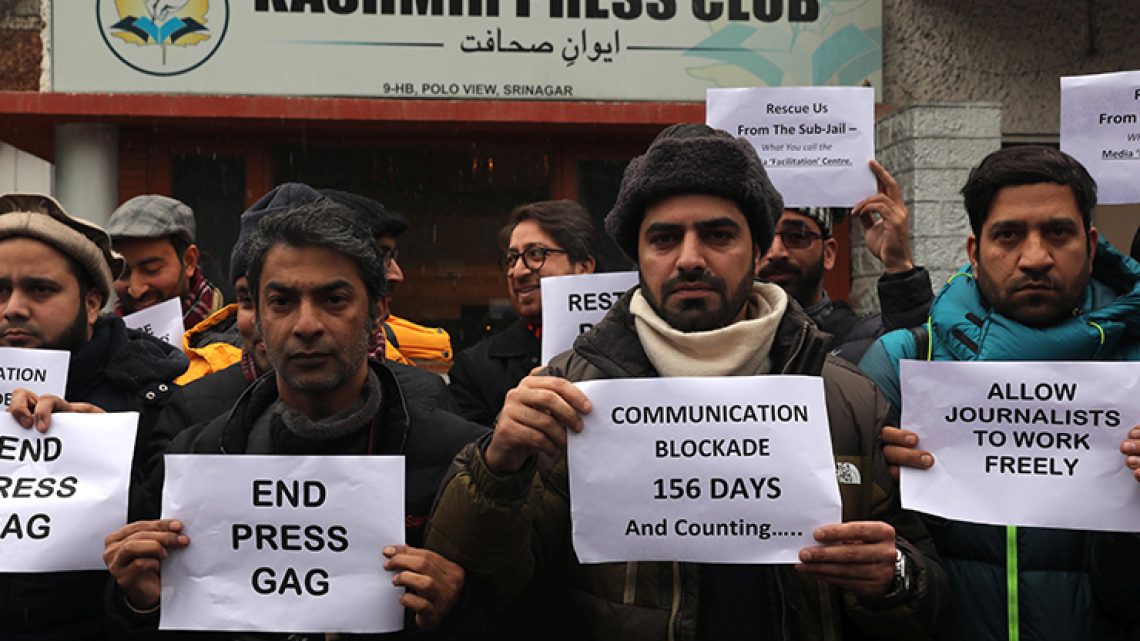
The Perilous Reality for Journalists in Indian-Illegally Occupied Kashmir
May 3, 2024The conflict-ridden region of Indian illegally occupied Jammu and Kashmir (IIOJK) has become one of the most perilous places for journalists, who valiantly endeavor to carry out their professional duties amidst challenging circumstances. On the occasion of World Press Freedom Day, a report is compiled and it is revealing the grim reality faced by journalists in the region. Since the onset of Kashmiris’ ongoing struggle for freedom in 1989, twenty journalists have tragically lost their lives, including notable figures like Shabbir Ahmed Dar, Mushtaq Ali, and Aasiya Jeelani, highlighting the grave risks associated with reporting in IIOJK.
The report underscores a stark increase in the victimization of journalists in Kashmir, particularly since August 5, 2019. Journalists face a myriad of dangers, ranging from manhandling, abductions, and murder attempts to harassment, detentions, and death threats by Indian security forces and other agencies. Notably, several journalists, including Kamran Yousuf, Aqib Javeed, and Fahad Shah, have been arrested or summoned for their coverage of pro-freedom demonstrations, often languishing in detention for extended periods.
The story of Aasif Sultan epitomizes the plight of journalists in IIOJK. Arrested in 2018 under dubious charges, Sultan was released after enduring five and a half years of imprisonment, only to be rearrested on equally fabricated grounds in 2024. Such incidents underscore the systematic repression faced by journalists who dare to speak truth to power in the region.
Furthermore, Indian authorities have actively impeded journalists’ efforts to report on ground realities, particularly during Indian forces’ cordon and search operations. Freelance journalists and foreign correspondents have also faced intimidation and restrictions, exemplified by the cases of Comiti Paul Edward and Annie Gowan, who were detained or restricted from reporting on human rights abuses in the region.
The plight of Kashmiri journalists has garnered international attention, prompting calls for action from local journalist bodies and the global community. However, the challenges persist, as evidenced by the recent case of Australian journalist Avani Dias, who was forced to leave India after facing visa restrictions and censorship for her reporting on sensitive issues such as the killing of Canadian Sikh leader Hardeep Singh Nijjar.
Dias’ case is emblematic of a broader trend of increasing restrictions on foreign journalists in India. In recent years, several journalists, including French journalist Vanessa Dougnac, have been targeted for their critical reporting, facing threats of visa cancellations and accusations of creating biased perceptions of India.
The escalating crackdown on press freedom in India underscores the urgent need for international intervention and solidarity to safeguard the rights of journalists and uphold the principles of freedom of expression and press freedom. It is imperative that the international community holds India accountable for its egregious violations of human rights and ensures that journalists can operate without fear of reprisal or censorship. Only through concerted efforts can we protect the invaluable role of journalists in safeguarding democracy and promoting transparency and accountability.

